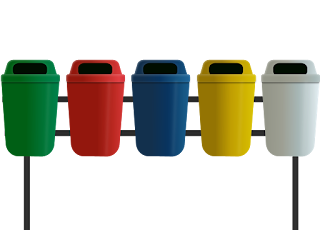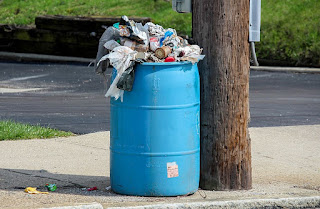Compost is made out of daily food leftovers & yard scraps. It is all-natural and can be reused as an effective fertilizer to nourish the plants. Composting is the ultimate way to reuse and recycle. The manure is proven to be a lot healthier for soil and plants. Also, it is inexpensive. All these eco-friendly qualities of composting make it the ultimate way to reuse and recycle wet wastages. In spite of all these things, there are many other positive effects which make the compost useful in our daily lives.
So, what are the benefits of composting:
Promotes reuse
It is always recommended to use manure rather than factory-made fertilizers and pesticides. Chemical fertilizers and pesticides have long term negative effects on the environment. They can increase global warming effects. Also, the fertilizers are manufactured in factories using limited natural resources. Once used, it cannot be recycled again.
On the contrary, the manure is made out of wastages of food and yard scraps. It does not require any supplementary raw material for production. It just recycles wasted materials every time and encourages reuse. The manure can be used in tree plantation activities or agricultural activities. Every time new scraps & leftovers are generated, they can be composted into rich manure and used again.
Prevents pollution
When you compost cooked food items, it reduces the volumes of food leftovers sent to landfills which in turn prevents the leftovers from rotting into open landscapes. As a result, the emissions of deadlier methane gas in the atmosphere is reduced. The methane gas is considered to be 25 times more dangerous than carbon dioxide.
It has severe implications on the health of living beings. Excessive methane gas decreases the proportions of oxygen in the air which further results in headache, nausea, dizziness, etc. When you compost wet leftovers, the proportions of methane present in the atmosphere also decreases. This gives fresh air to breathe and also decreases pollution levels.
Minimizes garbage generations
Out of the total garbage generations, 73% of the garbage is in the form of wet scraps. These scraps just increase the burden of trash disposal on the mother earth. Also, it has serious repercussions on the ecosystem and environment.
When you start composting wet leftovers at initial levels only, then the quantities of daily garbage creation starts to reduce considerably. It saves many landfills from the dumping of wet leftovers. These saved landfills can be used for new purposes like agricultural activities, residential complexes, or simply for nature and wildlife preservation.
Saves time and money
Compost is made out of wasted materials like meal leftovers, eggshells, chicken bones, gardening scraps, etc. There are no external materials used and therefore no major costs are involved in various methods of composting. Although methods like direct composting or vermicomposting can take a great deal of time and effort, still it protects us from future dangers.
Even if you still wish to save your time, then you can also install waste composting machines like Goldust on your premises. It converts wet materials into manure within 24 hours. And, you can compost any kind of wet leftovers in it. As a result, you can outsource the side tasks and focus more on the core ones.
Conclusion:
We can see that there are a number of benefits of using compost. It follows the fundamental principle of recycling i.e. Reduce, Recycle, and Reuse. Composting aims towards nature conservation. It is possible to create zero garbage cities in the future with the help of composting.
If you wish to start composting at your home or in business, then you can purchase a composter machine-like Goldust on your premises. Goldust decomposes wet materials within a specified time and produces eco-friendly manure. This manure can be used in gardening or farming activities. Compost removal can be done once in 8-10 days.
You can visit the official website of
LAHS Eco Engineering for more information.
























